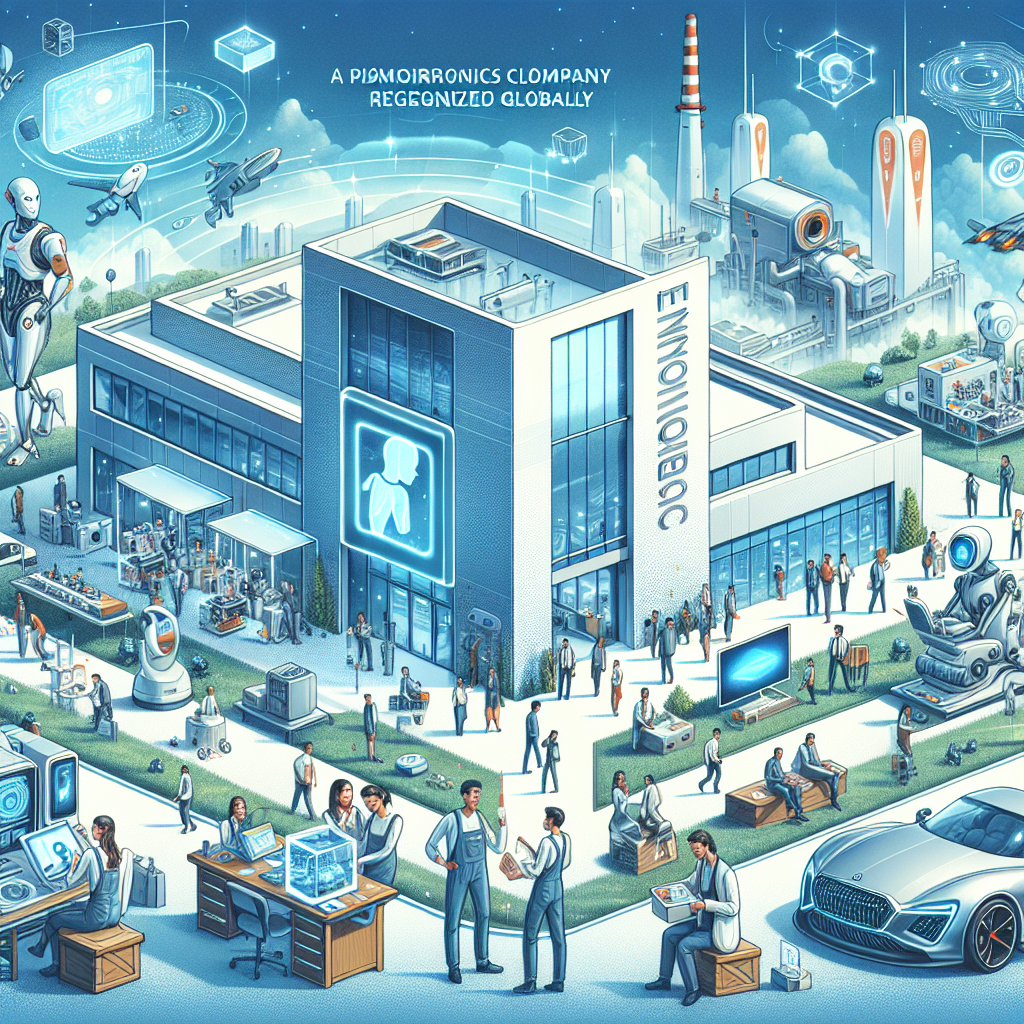ILO Hosts National Dialogue in Indonesia to Promote Responsible Business and Decent Work in Electronics Sector
Indonesia’s electronics sector plays a vital role in the country’s manufacturing landscape, providing employment for hundreds of thousands of workers while driving technological innovation.

The International Labour Organization (ILO) is leading a two-day National Industry Dialogue on Responsible and Sustainable Electronics Supply Chains in Indonesia, aimed at enhancing responsible business conduct (RBC) and advancing decent work across the electronics sector. The event, which took place from November 28-29 in Jakarta, brought together key industry stakeholders, policymakers, and experts to discuss strategies for promoting competitiveness, sustainability, and skills development in the sector.
Indonesia’s electronics sector plays a vital role in the country’s manufacturing landscape, providing employment for hundreds of thousands of workers while driving technological innovation. The government has highlighted the industry as a key priority under its Making Indonesia 4.0 Road Map, aiming to develop the sector and integrate it more deeply into the global supply chain, particularly in the burgeoning semiconductor industry.
To support these efforts, the ILO’s National Dialogue brought together over 100 stakeholders, including government officials, industry leaders, trade union representatives, and ILO experts. The dialogue’s primary goal was to foster collaboration among these diverse groups to identify opportunities for responsible business practices, improve workers’ skills, and ensure sustainable supply chain management.
Key Indonesian Figures Participate in Dialogue
The event was presided over by prominent Indonesian figures in the world of work, including Chairul Saleh, Acting Deputy of Industry, Employment, and Tourism at the Coordinating Ministry for Economic Affairs; Shinta W. Kamdani, Chair of the Indonesian Employers’ Association (Apindo); Elly Silaban, President of the Confederation of All Trade Unions (KSBSI); and Simrin Singh, ILO Country Director for Indonesia and Timor-Leste. Their leadership underscored Indonesia's commitment to advancing the electronics industry while ensuring fair working conditions and sustainability.
“The government of Indonesia has selected the electronics sector as one of the key industries to drive industrial development and global competitiveness,” stated Deputy Chairul Saleh. “The National Dialogue will offer vital recommendations to improve skills and competencies in this sector, ensuring we remain competitive in global supply chains.”
The Role of the ILO’s MNE Declaration in Shaping Responsible Business
A core component of the National Dialogue was a discussion of the ILO’s Tripartite Declaration of Principles concerning Multinational Enterprises (MNEs), an essential instrument for guiding businesses toward responsible and sustainable workplace practices. The MNE Declaration provides actionable recommendations on Human Rights Due Diligence, a critical aspect of managing supply chain responsibilities in the electronics industry.
Simrin Singh, ILO Country Director for Indonesia and Timor-Leste, highlighted the growing importance of the link between business and human rights. “Indonesia’s commitment to the National Strategy on Business and Human Rights, launched last year, demonstrates its dedication to improving the business environment with respect for workers' rights. By combining international guidance like the MNE Declaration with locally owned strategies, Indonesia can ensure that its growth is sustainable and inclusive,” Singh said.
Key Sessions Focus on Industry Challenges and InnovationsThe National Dialogue featured sessions that explored opportunities and challenges in the Indonesian electronics sector, with a particular focus on supply chain sustainability and the promotion of RBC. Topics included industry innovations, the role of skills development in preparing workers for the future of electronics manufacturing, and lessons learned from other countries’ efforts to implement responsible supply chain practices.
The event also encouraged dialogue and collaboration, enabling stakeholders to co-create actionable solutions for addressing Decent Work deficits and improving the resilience of supply chains. Participants shared insights on best practices from both domestic and international contexts, emphasizing the need for ongoing collaboration among government, employers, workers, and civil society to ensure fair and sustainable growth in the sector.
Supporting Responsible Business Through ILO Projects
To further support the adoption of responsible business practices, the ILO is implementing two key projects in Indonesia: the Resilient, Inclusive and Sustainable Supply Chains (RISSC) project and the Skills Development and Responsible Business Conduct for Transition (METI-Skills) project.
The RISSC project, funded by the Japanese Ministry of Health, Labour and Welfare (MHLW), aims to strengthen supply chain resilience by addressing Decent Work challenges and promoting RBC at the enterprise, industry, and national policy levels. The METI-Skills project focuses on developing workforce skills to prepare for the industrial shift toward a sustainable economy, ensuring that workers are equipped for the evolving demands of the electronics sector.
A Collaborative Effort for a Sustainable Future
The National Dialogue reflects Indonesia’s ongoing efforts to foster a more sustainable and responsible electronics sector. By bringing together diverse stakeholders and drawing on international frameworks such as the MNE Declaration, the ILO is helping Indonesia pave the way for inclusive growth and a more resilient, equitable workforce in the electronics industry. With a renewed commitment to decent work, RBC, and skills development, Indonesia is poised to become a leading force in Southeast Asia’s sustainable industrial landscape.










